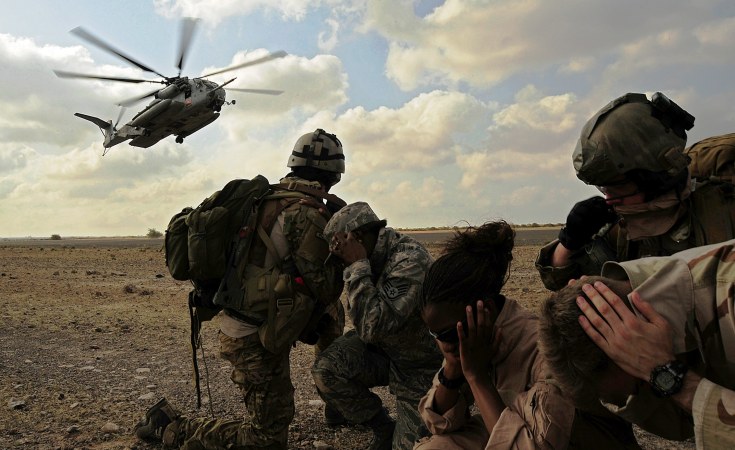Nairobi, Kenya — A U.S. Marine Corps general who commands forces in Africa says stability and support programs for Somalia are in the works as the country prepares for the withdrawal of African Union troops in December.
General Michael Langley, head of the U.S. Africa Command, said that after meeting this past weekend with Somali President Hassan Sheikh Mohamud and his top military official, Major General Ibrahim Sheikh Muhyadin Addow, he's confident the country can manage its own security after the December withdrawal of the African Union Transitional Mission in Somalia, known as ATMIS.
Langley's remarks, in a virtual briefing to reporters Thursday, came 2 1/2 years after the multidimensional mission was authorized by the U.N. Security Council, in part to help stabilize the country following years of insurgency by the militant group al-Shabab.
Langley said that Somali authorities have told him military operations in the southern and central parts of the country are focused on liberating some areas from the militants and stabilizing others.
"The operations are ebbing and flowing," Langley said. "I'll just use some of their narratives. They have a young army, it's a building army, so there are some successes and some setbacks, but I think the morale across the forces is building and they are very enthusiastic they're going to be able to keep al-Shabab back on their heels going forward in future operations."
In a briefing to the Security Council in June, Mohamed el-Amine Souef, head of ATMIS, told the council that the threat posed by al-Shabab remains unpredictable. Citing a recent attack on Somali security forces in the Galmudug region, and a mortar attack on the ATMIS camp in Baidoa, he said the group still retains the ability to conduct devastating assaults.
Although Somali forces supported by ATMIS have achieved significant gains in the fight against al-Shabab, support from international partners is essential to maintain the momentum, he said.
After visiting Somalia, Langley arrived in Kenya, which contributes troops to ATMIS, where he said he plans to engage with the Kenyan military leadership to explore future prospects on how to help the Somali army hit its operational objectives.
"They have been a tremendous partner with the Somali national army, institutionalizing, professionalizing, helping them to be able to operate in various areas, collaborating along the border to ensure the defeat of al-Shabab," Langley said.
In West Africa, U.S. troops recently withdrew from Niger, where they were ordered to leave after a military junta took power. Juntas that took power by force also rule Mali and Burkina Faso.
Langley said the way forward on security cooperation across the Sahel is still to be determined, but added that U.S. forces will stay engaged.
"In the interim, yes, we are pivoting to some degree on like-minded countries with democratic values and shared objectives and shared challenges across the coast of West Africa," he said. "So yes, we are in talks with Cote D'Ivoire, in talks with Ghana and Benin, as well as we start to reset and calibrate some of our assets."
He said those countries are facing threats from terrorist groups like al-Qaida and Islamic State, which initially operated in Mali, Burkina Faso and Niger, but are now moving toward other countries across the region.


